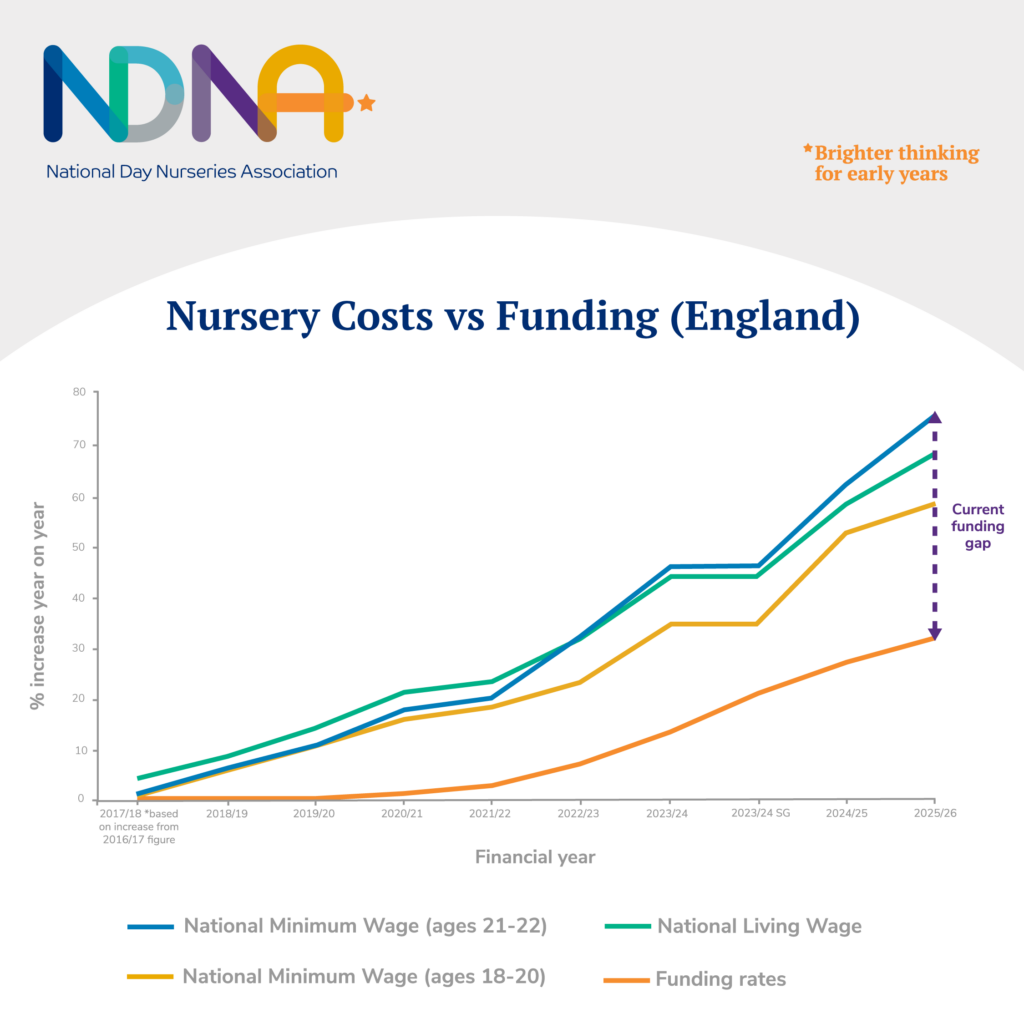
Increases to national minimum wages cannot be unfunded in early years
The Low Pay Commission has announced that it is revising up its estimated increase in the National Living Wage (NLW) for 2026/27 from £12.65 to £12.71 per hour. This estimation is based on “stronger than forecast” wage growth, which impacts on how the National Living Wage is calculated.
The Commission has now received its remit from the Government including “that the National Living Wage rate does not drop below two-thirds of UK median earnings”. This means that as average earnings increase, the level of pay needed at National Living Wage also increases.
An increase from £12.21 (the current rate) to £12.71 would be a 4.1% increase following a 6.7% increase last year. While this is an estimate the Commission has also shared a revised range for the National Living Wage of £12.55 – £12.86.
Responding to the update Purnima Tanuku CBE, Executive Chair of National Day Nurseries Association (NDNA), said: “Improving pay for the lowest paid has to be welcome but any plans to increase the National Living Wage must be met with the same rise in funding for early years places. Employers in our sector have faced years of underfunding and ever-increasing costs, which has made it harder and harder to properly recognise and reward the knowledge, commitment and expertise of the early years workforce.
“From September the Government will be buying 80 percent of the childcare and early education hours an average nursery delivers. Over the last eight years statutory minimum wages have risen at twice the rate of hourly funding rates for three and four-year-old places. Just last year funding rates were increased by between 3.3 to 4.1 percent while the National Living Wage increased by 6.7 percent and other bands were raised by more than 15 percent. This is not sustainable, the numbers do not add up.
“The Government has a vision for giving every child the best start in life. If this is to be realised we have to see pay improve, not just for the lowest paid, but at every level in our sector. Evidence shows that the qualifications and continuing development of staff are crucial to improving children’s outcomes in early years. For employers to be able to recruit and keep the staff they need we have to address inequality between funding and the actual cost of delivery, so we can truly invest in our amazing workforce.”
NDNA has been tracking the growing gap between funding rates and the rate at which statutory wages have been rising since 2017. This is used in our evidence to the Low Pay Commission, Treasury and the Department for Education to address underfunding.

You can hear about our recent evidence session with the Low Pay Commission here
- early years
- funding
Similar Articles
Disappointment as Scottish Budget fails to address funding system inequalities

Nursery: Where the Best Start Happens - NDNA’s new campaign championing PVI nurseries


